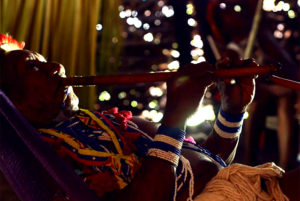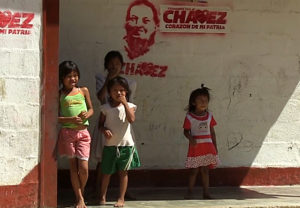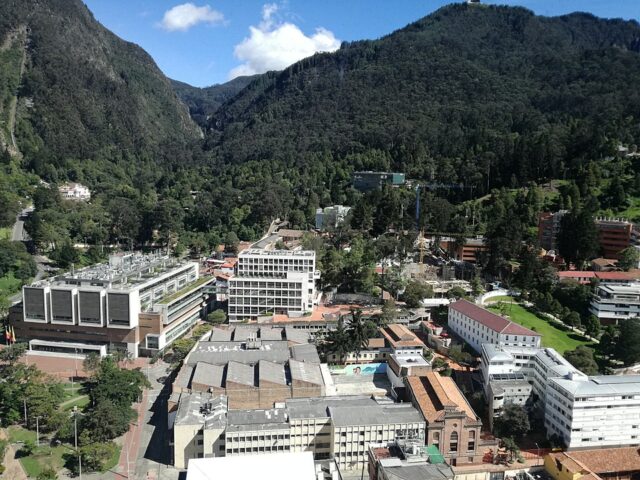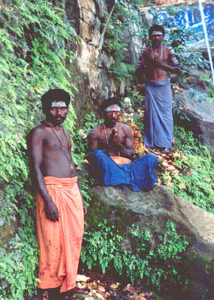Hortimio Ochoa, a 33-year-old Piaroa leader, was featured in a lengthy Venezuelan newspaper article on Wednesday last week for his dedication to preserving the traditional values and culture of his people as well as for his efforts to protect their lands and waters from illegal miners and armed groups.

The author of the piece, María Ramírez Cabello, argues in her essay that Hortimio is inspired by a culture hero of the Piaroa, Wänä’cä, a leader of the people 400 years ago during the period when the Spanish were invading their territory. Today, Piaroa shamans sing songs about the hero during ceremonies they initiate to cause symbolic revenge against those who have violated the tranquility of their community.
Hortimio tells the journalist why he is inspired by Wänä’cä: “For us, he was like Simon Bolívar, and he has been an inspiration in my struggle.” Hortimio is the coordinator of the group United Huöttöja People’s Organization – Piaroa del Cataniapo. Huöttöja is an alternate name for the Piaroa. The Rio Cataniapo is a tributary stream that flows westward through Piaroa territory to enter the Orinoco River at the south end of the small city of Puerto Ayacucho. There are 22 communities in the Cataniapo watershed with about 3,170 inhabitants among them.

Hortimio’s organization is led by a council of elders, eight men and women who initiate ways to defend their territory from invaders and despoilers. In June 2020, for instance, they were able to close an illegal road that miners had built through the forests south to the border with Brazil. In February 2020, 700 Piaroa marched to a place in the forest where some FARC dissidents from Columbia had tried to establish a mining operation.
Hortimio told the reporter how, in late December of 2019, he and some of his people confronted a bunch of dissident invaders. He spoke with the commander of the group and told him they were trespassing on Piaroa territory. The invaders were armed but that did not deter him. “We march and we talk with them, because we are not people of war.” The dissidents claimed to have the approval of the government for their invasion but Hortimio would not accept their statements. They lacked approval from the Piaroa. After some discussions, the invaders left.

Hortimio became interested in the issues confronting Venezuelan indigenous people while attending the University of Los Andes. A year after graduating, in 2009, he began touring communities in the Amazonas state where he came from. He founded his advocacy organization and had it legally registered in 2012, with some help and guidance from people in the university. He told the reporter, “Our struggle is framed by defense of life and the right to a free space and peace, because salvation of the planet lies with ancestral wisdom and traditional knowledge, and my duty is to transmit it from generation to generation.”
The reporter shifted to a discussion of the community where Hortimio lives. Sardi, a village of adobe houses, is located on the bank of the Rio Cataniapo. The community treasures its large, very well-kept football field, where many people gather in the afternoon to play their favorite sport. However, they must go to school and patronize the medical dispensary in the neighboring village of Gavilán, an hour and a half walk away. And that medical facility lacks medicines and medical personnel.
After discussing the outstanding biological diversity of the Cataniapo basin and the treasures it contains, the reporter quoted Luis Betancourt Montenegro, a member of the Amazon Research Group, about the work that Hortimio is doing. Sr. Betancourt said that Hortimio’s work goes far beyond protecting the territorial rights of the Piaroa–his leadership also strengthens their cultural and social rights.
The article also covered the threat of the COVID-19 pandemic on the ongoing work of the Piaroa people in the Cantaniapo watershed and the reactions of Hortimio to the financial hits their communities are enduring. It concludes with an additional statement praising his leadership in many matters.
This article is most valuable for providing a clear understanding of the approaches the Piaroa take to handling conflict situations with outsiders. As the Encyclopedia of Peaceful Societies in this website explains, all of these groups of people vary in every way except in the fact of having a basic belief in remaining at peace and in finding ways to try and minimize conflicts that could lead to violence. The Piaroa are uniquely able, as Hortimio demonstrates, to convince outsiders that they want and expect peace and a nonviolent resolution of conflicts.

Some critics of the existence of peaceful societies maintain, erroneously, that these are all groups of people who flee into the forest at the slightest sign of trouble. Such an approach simply would not work for modern people, they argue. And yet while fleeing into the forest to avoid confrontations may have been the approach followed at times by some of the peaceful societies, such as the Paliyans and the Chewong, it is clearly not the path to peacefulness of many of the others.
The approach employed by the Piaroa of the Cataniapo valley makes it clear that confronting potential aggressors with determined, but peaceful reasoning is perhaps an even better approach than simply fleeing would be. Because he so effectively defuses conflict situations, Hortimio is more than simply a good leader for his society. He is an inspiration to people everywhere who are searching for alternatives to violence and warfare.